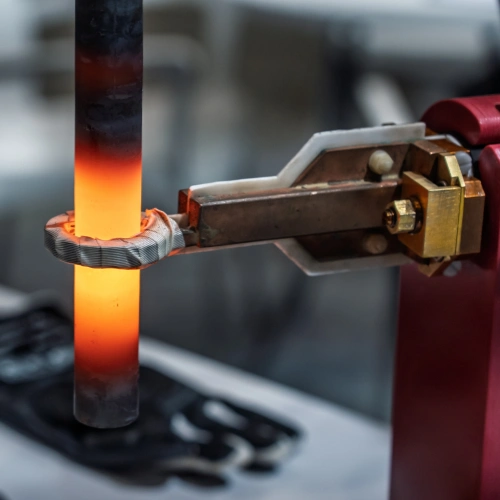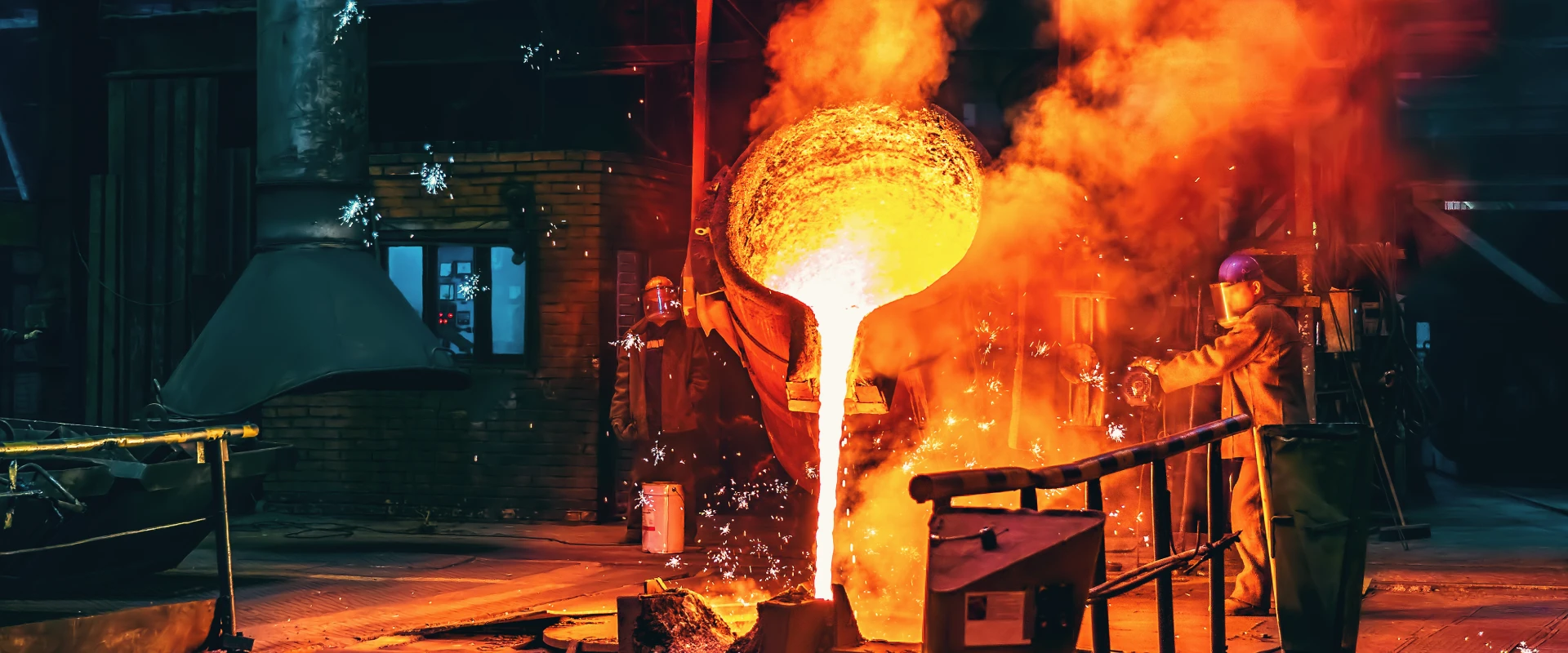Recommended High-Temperature Resistant Stainless Steel Materials
Factors Affecting High-Temperature Resistance in Stainless Steel
The ability of stainless steel to resist high temperatures depends on several critical factors. Understanding these factors helps in selecting the most suitable material for specific applications.

1 Chromium and Nickel Content
Chromium and nickel play a crucial role in stainless steel’s heat resistance. Chromium enhances oxidation resistance by forming a protective oxide layer, while nickel improves structural stability at elevated temperatures. Higher chromium and nickel content generally result in better high-temperature performance.
2 Carbide Formation and Heat Stability
At high temperatures, carbon can react with chromium to form carbides, reducing corrosion resistance and mechanical strength. Stainless steel grades with low carbon content or added stabilizers like titanium and niobium are more resistant to this issue.
3 Oxidation and Scaling Resistance
When exposed to high heat, stainless steel may develop surface scaling, which weakens its protective oxide layer. Grades with high chromium and silicon content are more resistant to scaling, ensuring longevity in extreme environments.
Best High-Temperature Resistant Stainless Steel Grades
Several stainless steel grades are designed to perform well under high heat conditions. Below are the most recommended options:
1 Austenitic Stainless Steel
Austenitic stainless steels are known for their excellent oxidation resistance and ability to retain strength at high temperatures.
304 Stainless Steel: Suitable for applications up to 870°C (1600°F), commonly used in food processing and exhaust systems.
310 Stainless Steel: Withstands temperatures up to 1150°C (2100°F) due to its high chromium and nickel content, making it ideal for industrial furnaces.
316 Stainless Steel: Contains molybdenum, enhancing its heat and corrosion resistance, particularly in marine and chemical environments.
2 Ferritic Stainless Steel
Ferritic stainless steels offer good oxidation resistance at high temperatures, though they are generally less ductile than austenitic grades.
430 Stainless Steel: Resists oxidation up to 815°C (1500°F), often used in kitchen equipment and automotive trims.
446 Stainless Steel: Provides superior scaling resistance up to 1100°C (2000°F), suitable for heat exchangers and furnace components.
3 Martensitic Stainless Steel
Martensitic stainless steels are heat-resistant and offer high strength, though they require proper heat treatment for optimal performance.
420 Stainless Steel: Used in applications requiring moderate heat resistance and high hardness, such as turbine blades.
440C Stainless Steel: Provides excellent wear resistance and can withstand moderate temperatures in tooling and bearing applications.
4 Duplex and Super Duplex Stainless Steel
These grades offer a combination of strength, oxidation resistance, and corrosion resistance, making them suitable for extreme environments.
2205 Duplex Stainless Steel: Balances heat resistance and strength, ideal for structural applications exposed to high temperatures.
2507 Super Duplex Stainless Steel: Designed for extreme environments, offering superior resistance to heat and stress corrosion cracking.
5 Specialized Heat-Resistant Stainless Steels
For extreme conditions, specialized stainless steels provide exceptional heat resistance.
904L Stainless Steel: High nickel content improves heat and corrosion resistance, making it suitable for chemical and marine applications.
253MA Stainless Steel: Contains silicon and rare earth elements, allowing it to withstand temperatures up to 1150°C (2100°F), commonly used in heat exchangers and industrial furnaces.
Applications of High-Temperature Resistant Stainless Steel
High-temperature resistant stainless steel is essential in various industries that operate under extreme heat conditions:
Industrial Furnaces: Used in furnace liners, heating elements, and structural components due to excellent oxidation resistance.
Exhaust Systems: Found in automotive and industrial exhaust systems where high heat and corrosion resistance are required.
Aerospace Industry: Jet engine components, turbine blades, and heat shields utilize heat-resistant stainless steels for performance and durability.
Power Generation: Boilers, turbines, and heat exchangers rely on stainless steel to withstand prolonged exposure to high temperatures.
High-temperature resistant stainless steel is crucial for industries that operate under extreme heat conditions. Austenitic, ferritic, martensitic, duplex, and specialized stainless steel grades offer various levels of heat resistance, strength, and durability. By understanding the factors affecting heat resistance and selecting the right material for specific applications, businesses can enhance efficiency, safety, and longevity in high-temperature environments.
If you'e looking for high-quality stainless steel, contact us today for a quote or more information.Our expert team is ready to assist with custom solutions tailored to your specific requirements.

